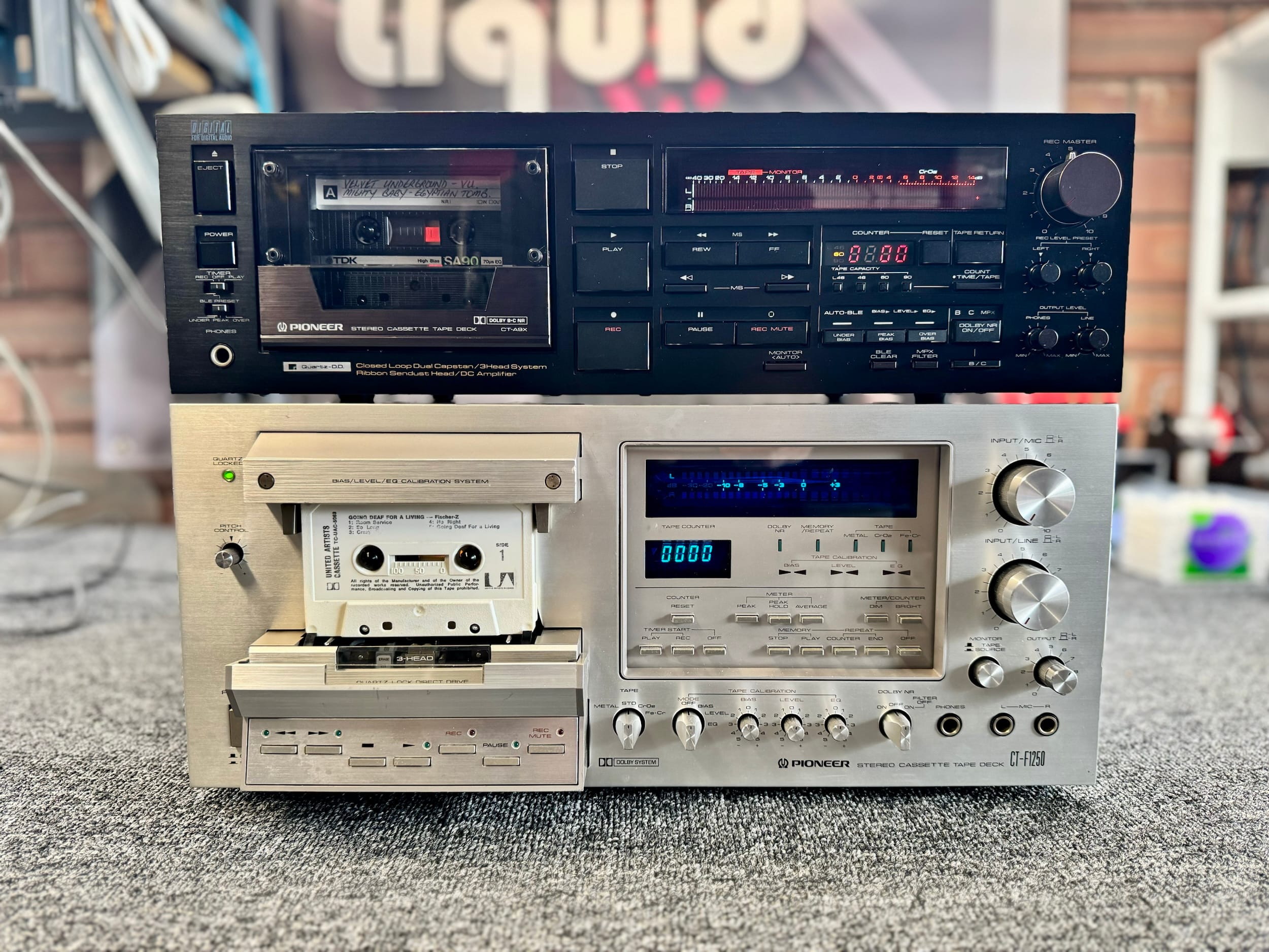Cassette decks offer a ton of fun and a real ‘blast from the past’ user experience, but there are a few things to consider before you go crazy.
I love cassette decks and own several really nice ones. That said, cassette decks are amongst the most complex hi-fi gear and generally require the most maintenance due to their electro-mechanical nature, belts, gears, and motors. Think of the VCR you used to own, and you’ll not be far away.

This maintenance is regular and periodic, with some necessary every 10 hours or so in the form of tape path cleaning. It’s also specialised, requiring special tools, lubricants, demagnetisers, calibration/test tapes and more. The work can be time-consuming and technical, much of which is way beyond most owners. So, the catch-22 with cassette decks is that as fun as they are, they can be costly to maintain.
I love playing tapes but remember that compact cassette, to use its correct name, was never intended to be a true hi-fi medium. It became one, and better decks with good tapes can sound excellent, but it’s more about the experience: warmth, VU meters, spinning reels and tactile interaction with these wonderful whirring machines.
If you want a cassette deck, look for a better, three-head, dual-capstan deck, from one of the bigger players like AKAI, Kenwood, Pioneer, Revox, Sony, TEAC, Technics, Yamaha and Nakamichi. Better decks cost more and are worth more, so the inevitable maintenance doesn’t feel so painful.

Full ‘mechanism out’ services have to be done periodically and take many hours. Many more hours can be spent on electronic adjustment and calibration. Most decks need major work at this age and the better decks are still very serviceable, but heads, pinch rollers and some other parts may be impossible to obtain, so choose carefully.
If in doubt, get good advice from someone who works on these wonderful old machines, and consider a specialist forum like TapeHeads.
Discover more from LiQUiD AUDiO
Subscribe to get the latest posts sent to your email.

